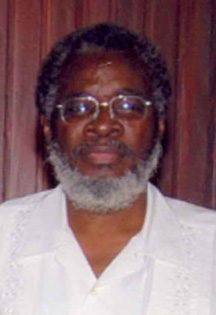The police force is investigating the theft of as many as 100 computers from the warehouse storing the units for the government’s One Laptop Per Family (OLPF) project, Cabinet Secretary Dr Roger Luncheon disclosed yesterday.
The computers were stolen over a three-month period from the warehouse used for the OLPF at 267 Forshaw Street, Queenstown, according to Crime Chief Seelall Persaud, who said persons are being questioned as investigations continue.
Persaud told Stabroek News that a police report of the theft was made about one week ago.

The news of the theft has come as government recently appointed a new project manager. Margot Boyce has now taken over the responsibility of running the controversial project, four months after her predecessor Sesh Sukhdeo resigned.
Luncheon, during a post-cabinet press briefing at the Office of the President yesterday, confirmed that there was a theft and said that the matter was in the hands of the police. According to Luncheon, the discovery of the theft was made at the warehouse.
During questioning by reporters, Luncheon was asked about the theft of a many as 103 devices, but he could not say how many were taken, saying instead that it was “a considerable number,” which is distressing. “I was advised that it was a significant number of laptops. The [Criminal Investigation Department] has been called in, investigations are ongoing,” he said.
Luncheon added that so far no suspect has been identified and no worker has been interdicted from duty at the OLPF Secretariat, which is also at the Forshaw Street location.
“We have had no such suggestions. The police investigations have not strongly identified a suspect for which such action might be applicable”, he stressed. He added that insurance does not cover the theft of the computers.
‘Corrective
management’
Meanwhile, Luncheon confirmed that that Boyce was appointed as the new project manager for OLPF project last Wednesday. A source close to the project, meanwhile, told this newspaper that after Sukhdeo left, the project entered into a phase of “corrective management,” which led to Boyce being hired to fill the post.
The OLPF has been mired in controversy from its inception, and the timing of the distribution of the first devices ahead of last year’s elections attracted criticism that it was an electioneering project. Questions were also raised about the soundness of the judgment behind it and whether it made sense. Critics of the project-the brainchild of former President Bharrat Jagdeo–have argued that handing out computers to families will not necessarily achieve the objective of making them computer literate. There were also the issues of training, maintenance, use of the netbooks and addressing matters like theft.
Controversy was also stirred when it was disclosed that the first set of netbooks were purchased via a financial donation from a Chinese company which had secured a large contract here.
A previous project manager also left under a cloud. Jud Lohmeyer, who said he was amazed at how much money he was being paid to oversee the project, was later accused by OP of threatening to blackmail it.
OP had said Lohmeyer, an ex-consultant/project manager hired to lead the pilot and design for the launch of the OLPF initiative, submitted his resignation after being criticized for poor performance and disclosures from an investigation into his credentials. OP added that Lohmeyer was “threatening” to release information unless he was provided with severance payments. Lohmeyer was later replaced by Sukhdeo who tendered his resignation in
early March.
Under the project, the government plans to distribute 90,000 to poor families over a three-year period.





